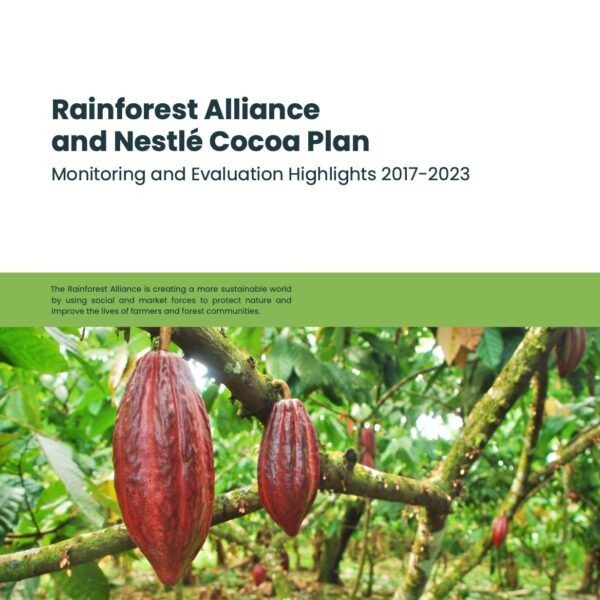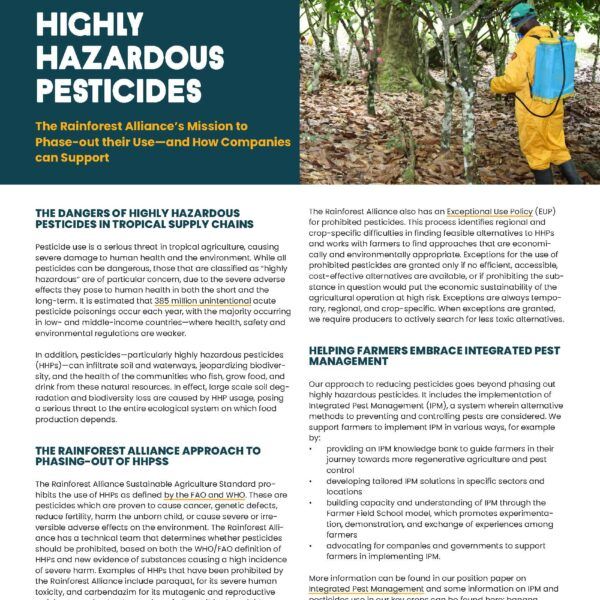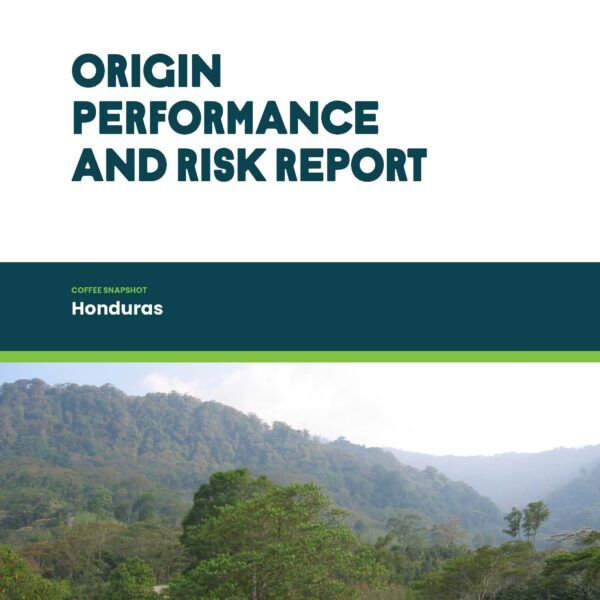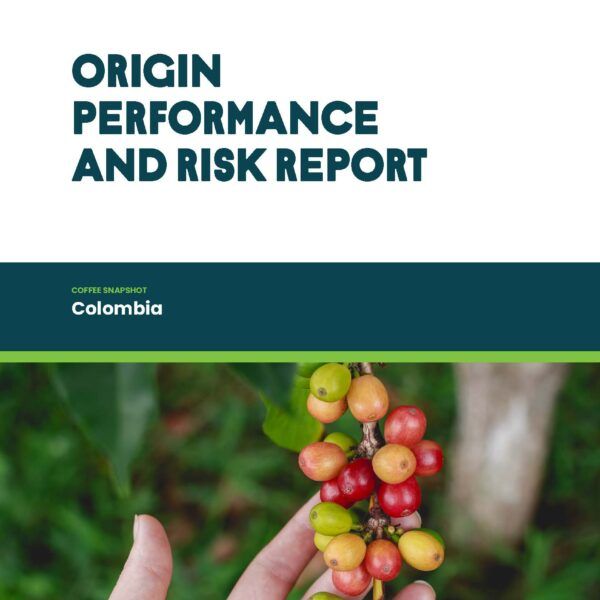Despite producing much of the world’s cocoa, it is estimated that about 87 percent of cocoa-growing households in Côte d’Ivoire earn below a living income. At the Rainforest Alliance, we believe cocoa and chocolate companies should go further to ensure farmers and their families are able to thrive and invest in the future of their farms. This shared responsibility approach is embodied in our certification program. It was also the basis for our Living Income pilot, and its next iteration: the Living Income Fund.
Piloting Tools to Enhance Incomes
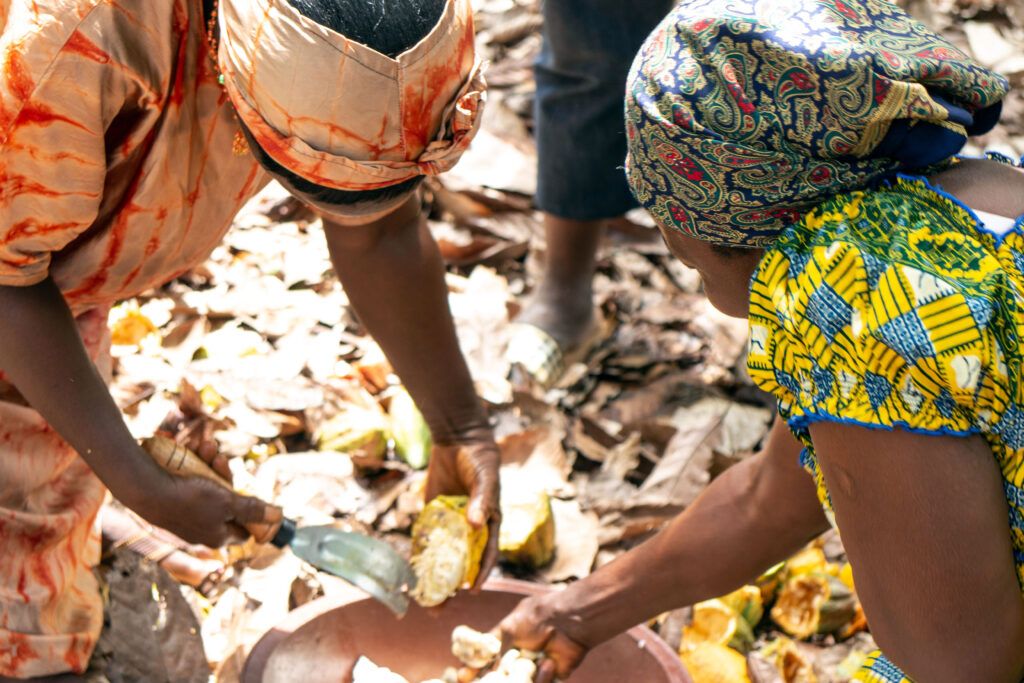
In 2021, the Rainforest Alliance partnered with IKEA Social Entrepreneurship, Cloetta, farmer connect (FC) and the German Agency for International Cooperation (GIZ) to pilot ways to enhance living income for farmers from two cooperatives in the Abengourou region of Côte d’Ivoire.
A key part of this pilot was establishing a direct connection between companies and the farmers they source from. Together with FC, we created a platform that verifies that company contributions are reaching participating cocoa farmers. This tool also featured a feedback loop for farmers to confirm cash transfers and provide input. IKEA Social Entrepreneurship and Cloetta provided grants for cash transfers and agricultural services, like weeding and pruning.
“At Cloetta, we are inspired to participate in this pilot project. Firstly, to support the farmers, and secondly to bring our consumers closer to the people growing their chocolate bars.”
Maria Selling, Cloetta’s sustainability manager
The proven benefits of cash transfers
A large body of evidence shows that cash transfers have positive impacts for farming communities, including better school attendance for their children, more food security, improved access to healthcare, and increased economic resilience.
As a result of the Living Income Fund in Côte d’Ivoire, 337 cocoa farmers received approximately EU€500 per year—translating to an estimated 11 percent increase in incomes. Improved incomes had a direct impact on cocoa farming families. Noel Soro, the Rainforest Alliance project lead, observed that “farmers were able to put their children in school on time without costly loans and were able to cover medical expenses and other emergencies.”
Living Income Fund project results
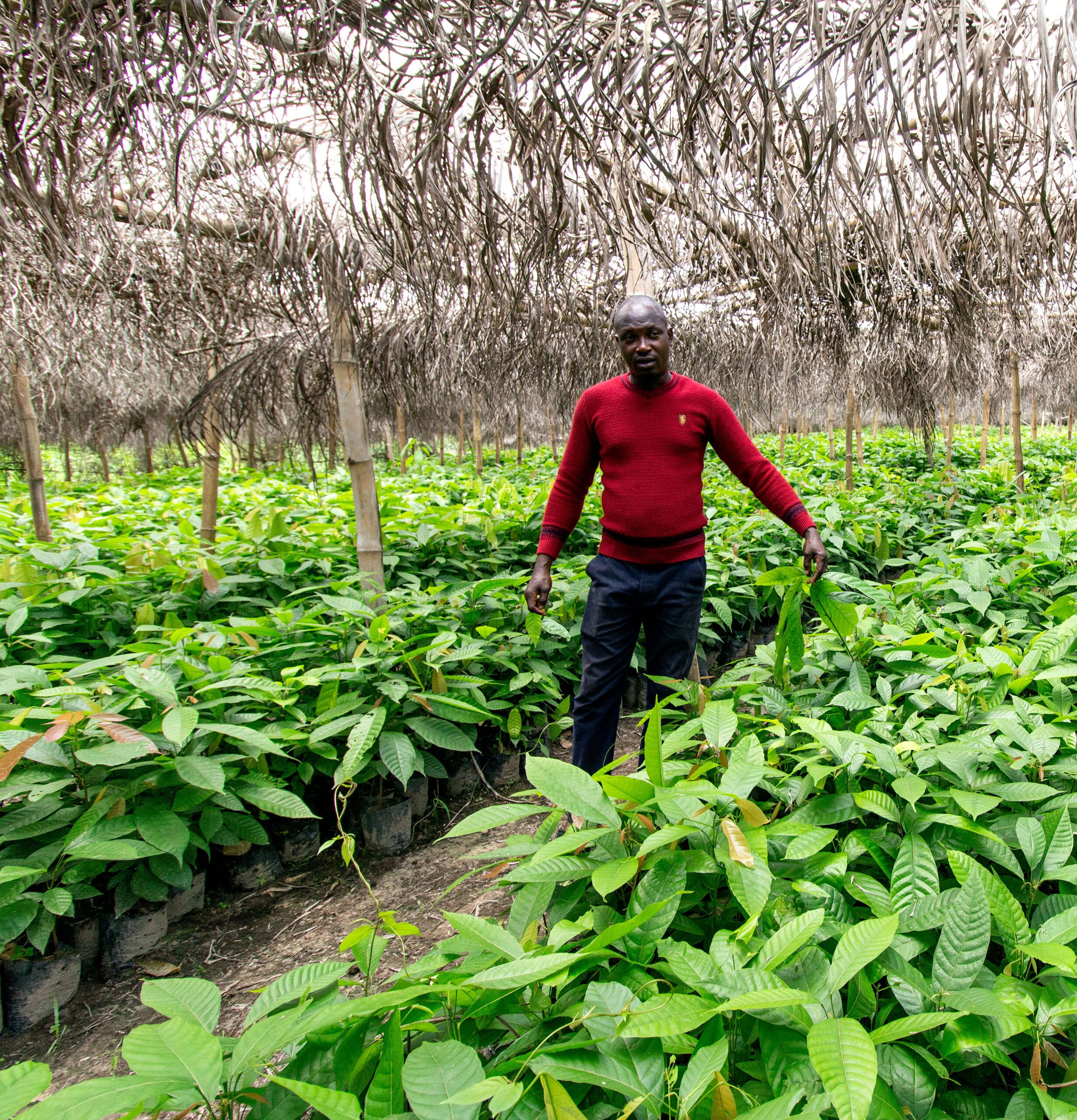
The Living Income Fund was able to channel money from IKEA and Cloetta directly into the hands of 337 farmers, increasing their incomes by 11 percent. Farmers reported that they were able to use the extra funds to cover necessities. We also connected them to younger members of the community willing to do agricultural services, such as pruning.
Hershey’s Income Accelerator Program
Thanks to the Living Income Fund, the Rainforest Alliance was able to secure a partnership with Hershey. Today, we are implementing the Hershey Income Accelerator Program, in which we will facilitate cash transfers to five thousand farmers and work with several cooperatives throughout Côte d’Ivoire to create livelihood-strengthening strategies and provide training on sustainable agricultural practices.
“Sustainability is a long-term journey, and all supply chain actors have a role to play.”
Nanga Kone, the Rainforest Alliance’s Director – Côte d’Ivoire

